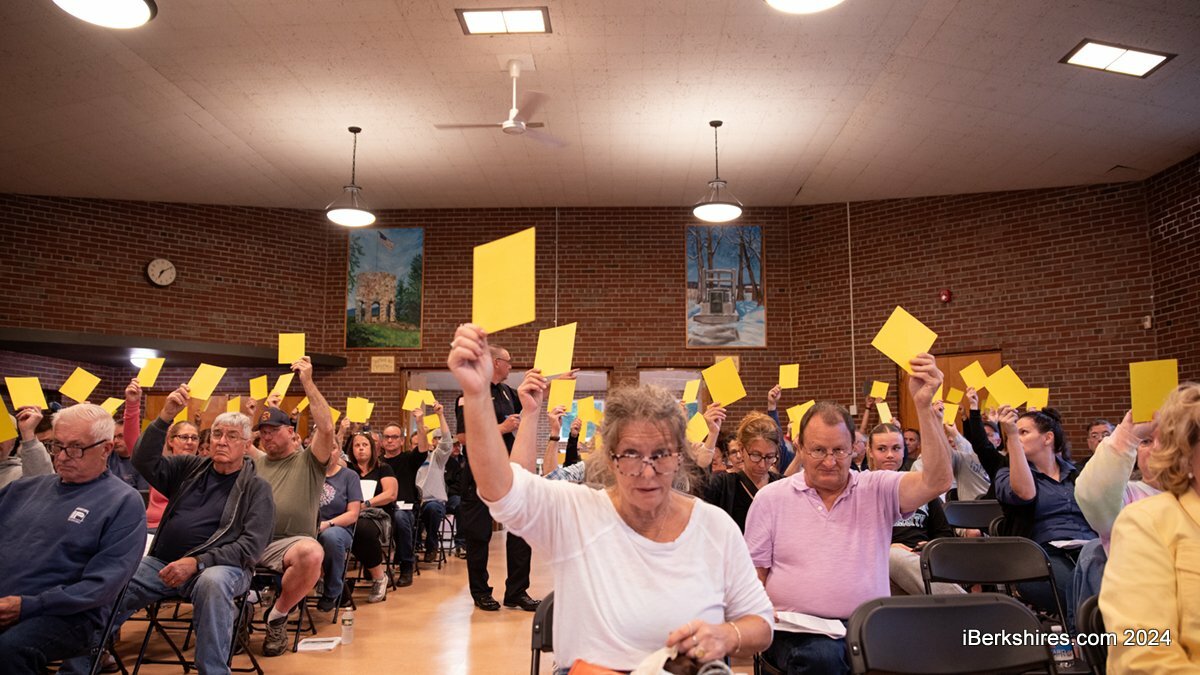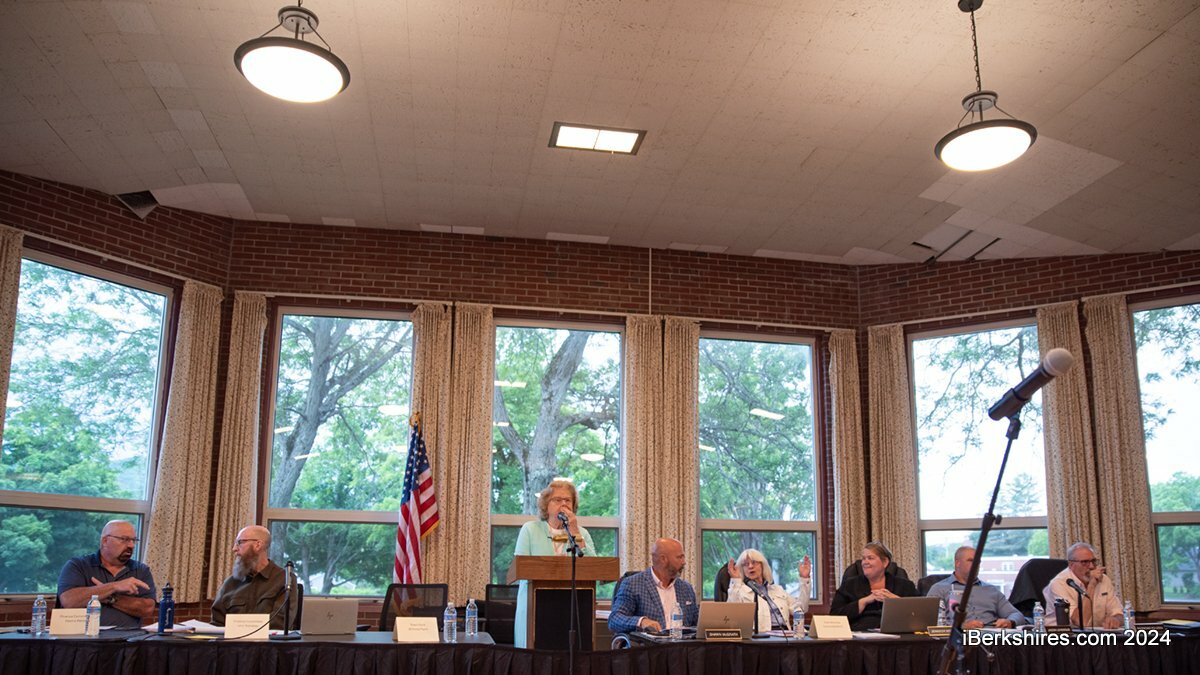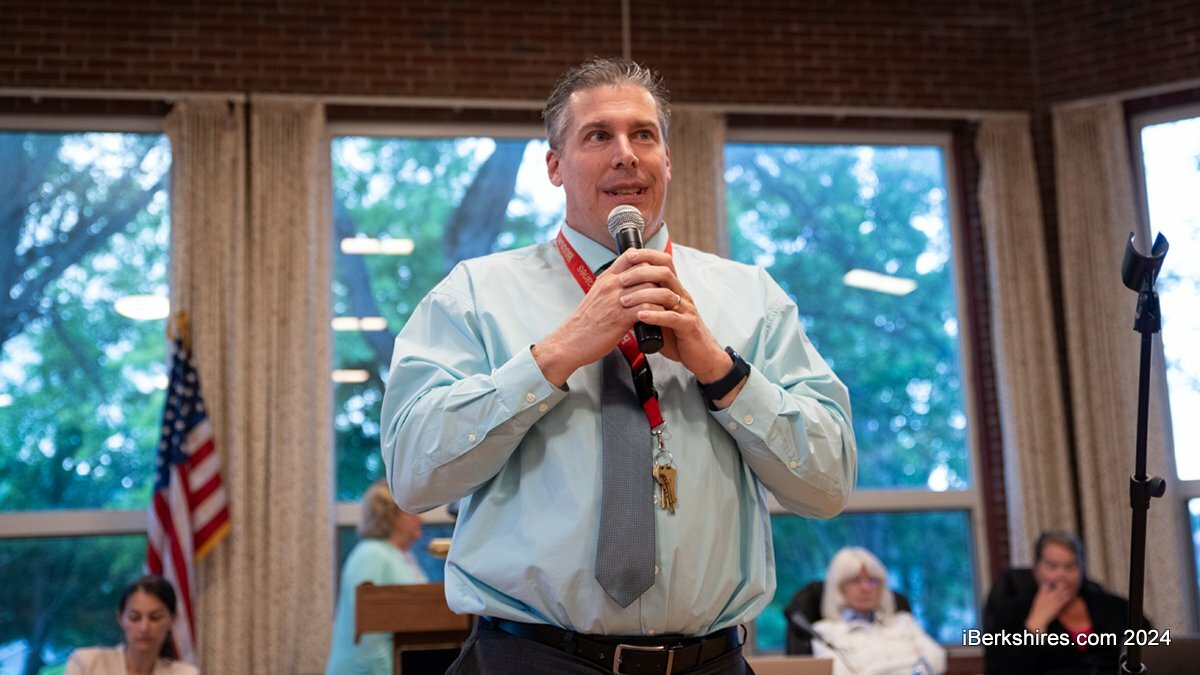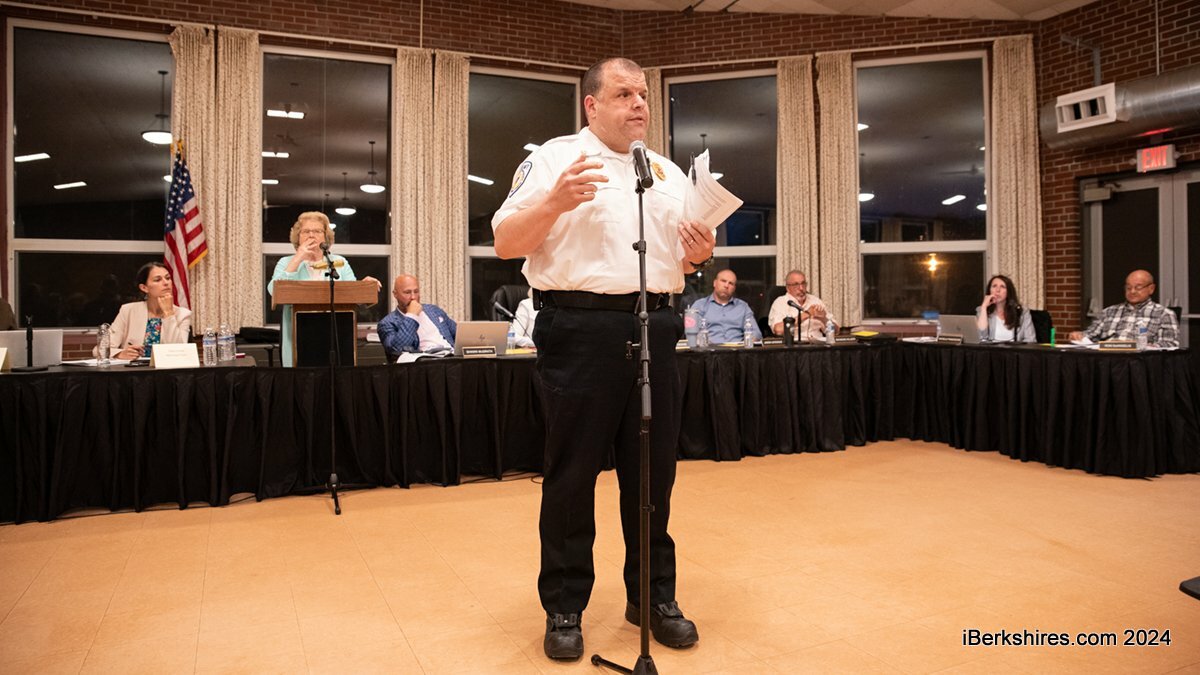CHESHIRE, Mass. — The town will have to vote on a Proposition 2 1/2 override to raise taxes in order to fund its portion of the budget for the Hoosac Valley Regional School District.
That outcome was reached at town meeting on Monday only after nearly an hour of discussion among more than 100 voters, the Selectmen, Finance Committee and school officials.
The first eight of 30 articles the annual town meeting warrant passed relatively quickly and unanimously at the start of the three-hour meeting. But with Article 9, the assessment to the regional school district, the meeting became more of an information session and sounding board for many in the town.
The motion for an override was put forth by Selectmen Chair Shawn McGrath as an alternative to using free cash and stabilization funds to pay for the budget.
If the Proposition 2 1/2 override is rejected, the school district's budget would have to be amended and approved by the town.
An override allows communities to raise beyond the 2.5 percent maximum annual increase under state law and requires a town meeting and a ballot vote.
Selectwoman Michelle Francesconi
had said in April that she hoped voters would reject the override and push the budget back to the school to amend.
Voters questioned why the school budget was rising by a $1 million.
"Why, when all the other schools all around us ... are doing different things to control their spending, our school seems to be going up in budget?" Gary Trudeau asked.
In response, Superintendent Aaron Dean took to the microphone to explain the district's challenges and the programs it is implementing to address them.
These included a high percentage of special-needs students, mental health concerns, school choice students, a program to standardize aspects of the curriculum, and teacher training and salaries. Dean had previously provided this information at a School Committee meeting in April.
Dean stressed the introduction of universal prekindergarten and Pathways programming that provides college credit and internship opportunities as ways the district is better serving its students while retaining more families.
While initially skeptical of the district's budget, the Finance Committee was convinced of its necessity after going over it in detail during a hearing with the School Committee.
Committee members did not support an override, with member John Tremblay citing natural fluctuations in school funding needs from year to year due to changing enrollment numbers. He noted that this year's budget was a reduction from the previous year.
Despite pleas to support the district with available funds by some voters and School Committee member Adam Emerson, the town passed the motion to vote on a Proposition 2 1/2 override 71-42. The date for the vote will be set by the Selectmen.
The town operating budget of $3,416,257, up barely 2 percent, or $75,279 over this year, was passed. There were increases in a number of lines but debt dropped by $105,000 from the final payment on well land this year. Also passed was McCann Technical School's assessment of $547,430, down from $564,446 this year.
There was some debate over Article 12, which would create a school resource officer position.
"We're at the school daily," Police Chief Michael Alibozek explained and without a school resource officer, an officer is regularly being taken off the street to deal with issues in the school.
The town voted unanimously in favor of creating the position.
More controversial was Article 21, which would provide the officer with a vehicle at a cost of $66,000. That article passed 98-11.
Article 22 authorized the purchase a new fire truck not to exceed $850,000 to replace a model from 2001. Fire Chief Tom Francesconi explained the necessity and benefits of a new truck, including the ability to access camp roads due to its smaller size. The article passed 104-1.
Both vehicle purchases will also require a ballot vote to exclude them from Proposition 2 1/2.
The town voted to amend the general bylaws by establishing short-term rentals standards, which would apply to Airbnb and similar rentals. Beginning July 1 such rentals will need to pay a $100 registration fee, and will be subject to "all relevant state and local statutes, rules and regulations pertaining to health and safety."
The town voted on ways to make their functions more efficient, such as the creation of a Transfer Station Enterprise fund that will separate the transfer station's revenues and expenditures from the town's. It is hoped that by keeping the records separately the transfer station will in time be able to be self-sustaining, though this could mean increased fees in the future.
Article 29 separated the treasurer/tax collector position to allow for two positions to be filled if the need arises. Article 27 allowed the collector to receive all monies due the municipality. This will allow, for instance, the collector to process transfer station stickers, a duty which can currently only be performed by the town administrator.
Two articles failed to pass. Article 30 would have made the town clerk an appointed, rather than an elected position, While there was some concern that this could lead to problems should nobody choose to run for election, in that situation a temporary clerk would be appointed by the Selectmen to serve until the next election. The town voted to keep the position elected.
Article 26 would have created a local sales tax of 0.75 percent on restaurant meals in Cheshire. The Selectmen presented the tax as being a nearly standard feature of towns in the area, but residents rejected the idea as being a burden on the few local businesses it would affect.
CJ Garner, owner of the recently opened Common Table, said he understood that high prices are a concern for customers and that "we try our hardest to not put that not back on you as our guest ... To have the most affordable experience as we can give to you."
Residents agreed overwhelmingly, if not unanimously, and the article was voted down.
After three hours of discussion and voting the most enthusiastic "Aye" of the evening was in response to Town Moderator Carol Francesconi's request for a motion to end the meeting. "Hallelujah!" she rejoiced at 9:55 p.m. "Thank you!"







